Twain, Mark: Selected Obituaries Read online
Page 3
IV.
Not by his subtlety, then, nor his depth, nor his elevation, but by his understanding and his unflinching assertion of the ordinary self of the ordinary American did Mark Twain becomes our "foremost man of letters."
He was geographically an American; he knew his land and its idioms at first hand -- Missouri, the Mississippi River and its banks, Nevada, California, New England, New York, the great cities. It is insufficiently recognized that to love one's country intelligently one must know its body, as well as its mind. He had the good fortune to be born in the West; so that, of course, he had to go East -- otherwise he might, instead of becoming an American, have remained a Bostonian or New Yorker all his life, and never have learned to love Chicago and San Francisco at all. At various times and places, he was pilot, printer, editor, reporter, miner, lecturer, author, and publisher. But during the first half of his life, he went most freely with "powerful uneducated persons, and with the young, and with the mothers of families." The books in which he embodies his early experiences -- "Tom Sawyer," "Roughing It," "Huckleberry Finn" -- are almost entirely delightful. They breathe the spirit of eternal boyhood, they are richly provincial, they spring out of the fresh earth. There is a touch of melodrama in the first, and more than a touch of farce in the last, but in the main, they are as native as a bluff to the Mississippi or a pine tree to a red spur of the Rockies.
It is when an American carries his virtues abroad that the lines of his character become salient. Mark Twain was a self made man, of small Latin and less Greek, indifferent to abstractions, deficient in historical sympathy and imagination, insensitive to delicate social differences, content and at home in modern workaday realities. I confess with great apprehension that I do not much care for his books of foreign travel. Like the story told on Whittier's birthday, they are "smart and saturated with humor"; but for some almost indefinable reason my emotions fail to enter into the spirit of the occasion. An uneasy doubt about the point of view binds my mirth as with a "black frost." I find myself concerned for my fellow-citizen, the author behind the books; beneath the surface gayety, the whole affair seems to be of appalling seriousness for us both. Ostensibly light-hearted burlesques of the poetical and sentimental volumes of travel, these books are in reality an amazingly faithful record of the way Europe and the Orient strike the "divine average" -- the typical American -- the man for whom the world was created in 1776. Wandering through the exhumed Pompeii, he peoples its solemn ruins with the American proletariat, and fancies that he sees upon the wall of its theatre the placard, "Positively No Free List, Except Members of the Press." He digresses from an account of the ascent of Vesuvius to compare the prices of gloves, linen shirts, and dress suits in Paris and in Italy. At length arrived at the summit of the mountain, he describes its crater as a "circular ditch"; some of the party light their cigars in the fissures; he descends, observing that the volcano is a poor affair compared with Kilauea, in the Sandwich Islands. He visits the Parthenon in the night; obviously, the memorable feature of the expedition was robbing the vineyards on the way back to the ship. The most famous picture galleries of Europe are hung with "celebrated rubbish"; the immemorial Mosque of St. Sophia is the "mustiest barn in heathendom"; the Sea of Gallilee is nothing to Lake Tahoe. The Mississippi pilot, homely, naive, arrogantly candid, refuses to sink his identity in the object contemplated -- that, as Corporal Nym would have said, is the humor of it. He is the kind of travelling companion that makes you wonder why you went abroad. He turns the Old World into a laughing-stock by shearing it of its storied humanity -- simply because there is nothing in him to respond to the glory that was Greece, to the grandeur that was Rome -- simply because nothing is holier to him than a joke. He does not throw comic light upon counterfeit enthusiasm; he laughs at art, history, and antiquity from the point of view of one who is ignorant of them and mightily well satisfied with his ignorance. And, unless I am very much mistaken, the "overwhelming majority" of his fellow-citizens -- those who made the success of "Innocents Abroad" and "A Tramp Abroad" -- have laughed with him, not at him. So, too, unquestionably, in the nearly parallel case of that bludgeoning burlesque, "A Connecticut Yankee at King Arthur's Court."
V.
What endears a public man to us is what he has in common with us -- not his occasional supereminences. It does not damage Franklin to say that he was not so graceful as Lord Chesterfield; nor Lincoln to say that he was not so handsome as Count D'Orsay; nor Mr. Roosevelt to say that one misses in his literary style I know not what that one finds in the style of Walter Savage Landor. Writing from Khartum, the hunter tells us that, in consequence of hard service in camp, his pigskin books were "stained with blood, sweat, gun oil, dust, and ashes." We have a mystical feeling that this is very appropriate and beautiful -- that a good American's books ought to be stained with gun oil and ashes. "Fear grace -- fear delicatesse," cries the author of "Chants Democratic." It does not damage Mark Twain to say that there was not a drop of the aristocrat in his veins.
In politics he was an intelligent but unspeculative democrat, committed to the principles of the preamble to the Constitution, preserving a tang of Tom Paine's contempt for kings, and not without a suggestion of the republican insolence caricatured by Dickens in "Martin Chuzzlewit." I do not think that he gave a "square deal" either to Europe or to the Arthurian realm; but within his own territory he had a very genuine sense of the brotherhood of man. He was not, like some more exquisite men of letters, a democrat in his study and a snob in his drawing room; he was of the people and for the people at all times. His tender regard for the social contract permeated his humor. It will be remembered that Pudd'nhead Wilson earned his nickname and ruined his chances as a lawyer for twenty years by an incomprehensible remark about a howling dog. "I wish I owned half of that dog," said Wilson. "Why?" somebody asked. "Because I would kill my half." No one understood him -- the sensitive, symbolic democracy of the expression was too compact for their intelligence, and they fell into a delicious discussion of how one-half could be killed without injury to the other half. That, to be sure, is also one of the problems of democracy; but Wilson's implications were, I believe, both simpler and deeper than that. In not molesting another man's dog, he showed the American reverence for property. The American desire to be moderately well-to-do (Mr. Roosevelt's "neither rich nor poor") he indicated by desiring to own only half the dog. In saying that he would kill his half he expressed his sacred and inalienable right to dispose of his own property as he chose, while at the same time he recognized his neighbor's sacred and inalienable right to let his half of the property howl. Indeed, I am not sure that he did not recognize that the dog itself had a certain property right in howling.
With almost every qualification for a successful political career, Mark Twain could never have aspired to the Presidency, for he was not a regular attendant at church -- a short-coming, by the way, which interfered seriously with Mr. Taft's campaign till his former pastor testified in the public prints that once at a church social taken the part of a fairy. In religion, Twain appeared to be a mugwump, or, more classically speaking, an agnostic over whom had fallen the shadow of Robert Ingersoll of pious memory. The irreligion of that generation is touched with a raw, philistine rationalism, but is thoroughly honest. Like all Americans, the author of "Tom Sawyer" received his religious culture in the Sunday-school, but stumbled over the book of Genesis and kindred difficulties, and was "emancipated." The loss of faith which, in proper conditions, is a terrible bereavement, was to him a blessed relief; when the God of the Sunday-school and camp meeting ceases to terrify, he ordinarily becomes a deadly bore. Having never known the magnificent poetry of faith, he never knew the magnificent melancholy of unbelief. His experience was typical, however, and his very unspirituality was social. In his examination of Christian Science, he admitted that every man is entitled to his own favorite brand of insanity, and insisted that he himself was an insane as anybody. That was enough to assure most of us that he was sound on "all
essentials."
"Be good and you will be lonesome" is, I suppose, one of Mark Twain's most widely quoted utterances on moral topics. At first thought one may wonder why this apparently Bohemian apothegm should have taken such hold upon the heart of a nation which above all things else adores virtue. But the difficulty disappears the instant one reflects that these seven words express as in a nutshell precisely the kind and temper of virtue that the nation adores. Like Wilson's observation on the dog, the saying is cryptic and requires explication. Twain tells us in his autobiography that when he was a boy his mother always allowed about thirty per cent. on what he said for "embroidery" and so "struck his average." The saying means, as I take it, first of all, don't lose your sense of humor as those do who become infatuated with their own particular hobbies in goodness. Calculate to keep about in the middle of the road, but make allowances for all reasonable shades of difference in taste and opinion. Don't be too good or you will find yourself in a barren and uninfluential minority of one. In America, whatever is not social is not virtue. When he put his shoulder under the debts of his bankrupt publishing house, the author of the apothegm himself explained its meaning. Natively fond of strong language, careless of peccadilloes, tolerant of all human frailties though he was -- kin-making touches of nature -- his feet were "mortised and tenoned" in domestic rectitude and common morality.
"We cannot live always on the cold heights of the sublime -- the thin air stifles" -- I have forgotten who said it. We cannot flush always with the high ardor of the signers of the Declaration, nor remain at the level of the address at Gettysburg, nor cry continually, "O Beautiful! My country!" Yet, in the long dull interspaces between these sacred moments we need someone to remind us that we are a nation. For in the dead vast and middle of the years insidious foes are stirring -- anaemic refinements, cosmopolian decadencies, the egotistic and usurping pride of great cities, the cold sickening of the heart at the reiterated exposures of giant fraud and corruption. When our countrymen migrate because we have no kings or castles, we are thankful to anyone who can tell us what we can count on. When they complain that our soil lacks the humanity essential to great literature, we are grateful even for the firing of a national joke heard round the world. And when Mark Twain, robust, big-hearted, gifted with the divine power to use words, makes us all laugh together, builds true romances with prairie fire and Western clay, and shows us that we are at one on all the main points, we feel that he has been appointed by Providence to see to it that the precious ordinary self of the Republic shall suffer no harm.
STUART P. SHERMAN.
Urbana, Ill.
Serious Humorists
From Nation, 90
June 30, 1910
[Simeon Stransky]
Mark Twain's memory may suffer from a certain paradoxical habit we have fallen into when passing judgment on the illustrious dead. The habit consists in picking out for particular commendation in the man what one least expects. If the world thinks of him as a great humorist, the point to make is that at bottom he was really a philosopher. If his shafts struck at everybody and everything, the thing to say is that he liked best what he hit hardest. If one of his books sold five thousand copies, the attempt is made to base his future fame on the comparatively unknown book. The motive behind such reasoning is commendable enough. It is the desire not to judge superficially, the desire to get at the "real" man behind the mask which all of us, according to tradition, wear in life. It is a praiseworthy purpose, but, in the hands of the unskilled or the careless, a perilous one. And worse than either is the intellectual snob whose business it is constitutionally to disagree with the obvious. We make no attempt to classify the writer who has declared that Mark Twain, when he wrote "Innocents Abroad," was terribly in earnest; that he set out to satirize and was funny only because he could not help it. This represents the extreme of a tendency that is made manifest on every side, to turn Mark Twain into everything but what he was -- a great compeller of laughter.
One gets dreadfully weary of such topsy-turvy criticism. There are times when one would like to believe that Napoleon will be remembered because he won Austerlitz and Marengo, and not because he divided up France into a vast number of small peasant holdings; that Lincoln was a great man because he signed the Proclamation of Emancipation and wrote the Gettysburg address, and not because he kept his temper under criticism and in adversity. It is well to try to pierce behind the veil of Maya, but no amount of analysis can do away with the popularly accepted beliefs that mothers are primarily maternal, that actresses' talents lie in the direction of the stage, that joyful people laugh, and that people who make wry faces are either pessimists or dyspeptics. What use is there in trying to make a serious book out of the "Innocents Abroad," when we know well that the Mark Twain who wrote it was primarily a fun-maker? For ourselves, we confess that we have been unable to find any grave purpose in the "Jumping Frog of Calaveras." We recall the Hawaiian stranger whom Mark Twain kissed for his mother's sake before robbing him of his small change. We recall the horse he rode in Honolulu; it had many fine points, and our traveller hung his hat upon one of them. We recall that other horse behind which he went driving one Sunday with the lady of his choice; it was a milk-dealer's horse on week-days, and it persisted in travelling diagonally across the street and stopping before every gate. These adventures are easy to recall, but the hidden serious purpose within them remains hidden from us.
The serious element in Mark Twain the man and the writer, it would, of course, be futile to deny. His hatred of sham, his hatred of cruelty, his hatred of oppression, appear in the "Innocents Abroad," as they do in his "Connecticut Yankee" and in his bitter assaults on the Christian Scientists and the American missionaries in China of the Boxer days. But to say that Mark Twain was a great humorist because he was an intensely serious man is not true, whatever truth there may be in the formula that humorists are humorists because they are men of sorrow. We would reverse the formula. We would say that humorists are often sad because they are humorists, and that from much laughing the rebound must necessarily be towards much grief. If it is commonly asserted that the humorist laughs because of the incongruities of life, it is, nevertheless, just as sale to maintain that the man born to laughter will be driven by his instincts to search for incongruities. There was no fundamental pessimism in Mark Twain. As Mr. Howells brings out in his chapter of reminiscences in the last Harper's, Mr. Clemens had the soul of untamed boyishness. He was boyish in his exuberance of manner, in his taste for extraordinary clothes, and in his glee at earning a great deal of money:
The postals [announcing his share of the daily profits from the "Gilded Age"] used to come about dinner-time, and Clemens would read them aloud to us in wild triumph. $150 -- $200 -- $300, were the gay figures which they bore, and which he flaunted in the air before he sat down at table, or rose from it to brandish, and then, flinging his napkin into his chair, walked up and down to exult in.
One thing there was in Mark Twain that was not apparently boyish or simple. Mr. Howells asserts positively that in his later years Twain believed neither in the Christian theology, in God, nor in immortality:
All his expressions to me were of a courageous renunciation of any hope of living again, or elsewhere seeing those he had lost. He suffered terribly in their loss, and he was not fool enough to try ignoring his grief. He knew that for that there were but two medicines; that it would wear itself out with the years, and that meanwhile there was nothing for it but those respites in which the mourner forgets himself in slumber. I remember that in a black hour of my own when I was called down to see him, as he thought from sleep, he said, with an infinite, an exquisite compassion, "Oh, did I wake you, did I wake you?" Nothing more, but the look, the voice, were everything; and while I live they cannot pass from my sense.
Here at last we have the disillusion that is said to dwell in the innermost soul of the great humorist. But here, too, we seem to feel that the gray vision of the future was with him not a cause, but a re
sult. When the buoyant soul sinks back upon itself it is apt to feel the riddle of life very keenly indeed.
* * *
Boston Globe Obituary
Editorial Points
From Boston Daily Globe
22 April 1910
[Anonymous]
People who speak of Mark Twain simply as a humorist do not realize how much serious work he did. He had securely held the place of the leading American author for a long time before he died.
From Boston Daily Globe
23 April 1910
[Anonymous]
Mark Twain was a natural, not a forced nor a mere verbal, humorist. He was also the first great American humorist and had no professional predecessor among all the laugh-provokers of the ages. As American as Franklin or Lincoln, his worth, like theirs, is appreciated in every land where newspapers or books are read.
The court jester of old had special privileges, and the obsequious and sycophantic paid homage to his drolleries in order to curry favor with the king.
The jester of democracy has no license from a sovereign to "blow on whom he pleases," nor no patent whereby flatterers are led to pay homage to his mirth. The fierce light that beats upon a throne is moonlight unto sunlight compared with the glaring lime blaze in which the words of the popular humorist are tested.
To withstand that test was a great achievement. Mark Twain did that, and more; for he never allowed his fun to fossilize into the somber platitudes with which some old men try to erase their reputations as laugh-makers and obtain standing in the ranks of the solemnly wise. He was a humorist to the last. His title was never disputed.

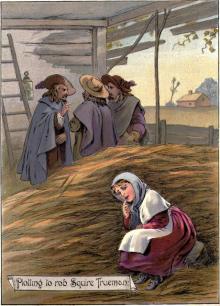 Goody Two-Shoes
Goody Two-Shoes The Pearl Box
The Pearl Box And when you gone...
And when you gone... Stranger At The Other Corner
Stranger At The Other Corner My Young Days
My Young Days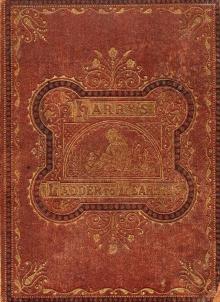 Harry's Ladder to Learning
Harry's Ladder to Learning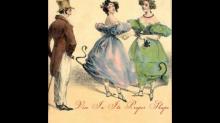 Vice in its Proper Shape
Vice in its Proper Shape_preview.jpg) Promise (the curse)
Promise (the curse)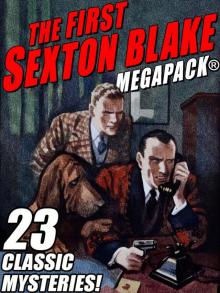 The First Sexton Blake
The First Sexton Blake Golden Moments
Golden Moments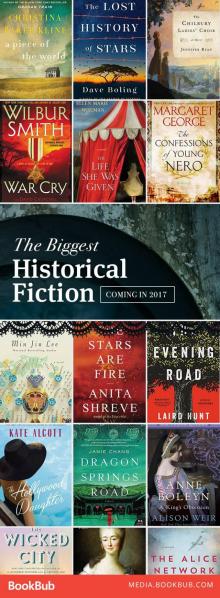 Hildebrand; or, The Days of Queen Elizabeth, An Historic Romance, Vol. 2 of 3
Hildebrand; or, The Days of Queen Elizabeth, An Historic Romance, Vol. 2 of 3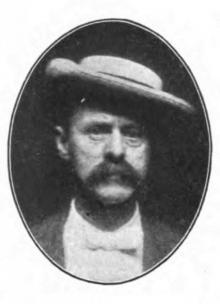 The Ice Queen
The Ice Queen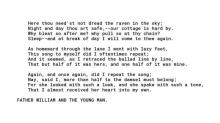 Phebe, the Blackberry Girl
Phebe, the Blackberry Girl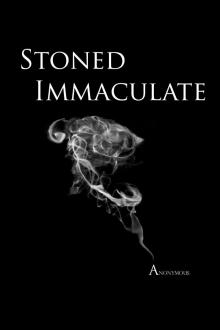 Stoned Immaculate
Stoned Immaculate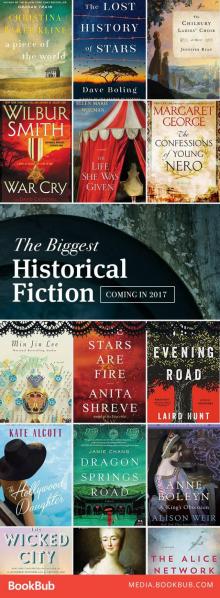 Hildebrand; or, The Days of Queen Elizabeth, An Historic Romance, Vol. 3 of 3
Hildebrand; or, The Days of Queen Elizabeth, An Historic Romance, Vol. 3 of 3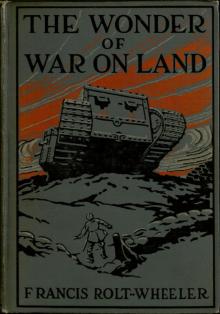 The Wonder of War on Land
The Wonder of War on Land Breaking Bailey
Breaking Bailey The Little Girl Who Was Taught by Experience
The Little Girl Who Was Taught by Experience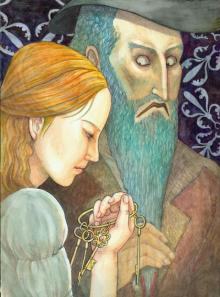 The Popular Story of Blue Beard
The Popular Story of Blue Beard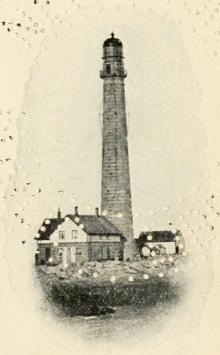 The Life Savers: A story of the United States life-saving service
The Life Savers: A story of the United States life-saving service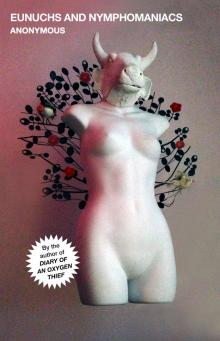 Eunuchs and Nymphomaniacs
Eunuchs and Nymphomaniacs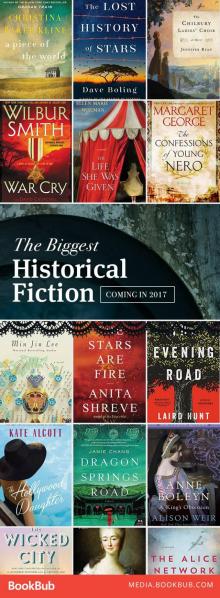 Hildebrand; or, The Days of Queen Elizabeth, An Historic Romance, Vol. 1 of 3
Hildebrand; or, The Days of Queen Elizabeth, An Historic Romance, Vol. 1 of 3 Kitty's Picnic, and Other Stories
Kitty's Picnic, and Other Stories Two Yellow-Birds
Two Yellow-Birds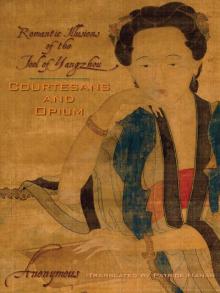 Courtesans and Opium
Courtesans and Opium The Emigrant's Lost Son; or, Life Alone in the Forest
The Emigrant's Lost Son; or, Life Alone in the Forest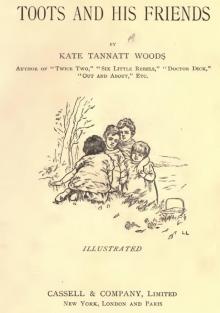 Toots and His Friends
Toots and His Friends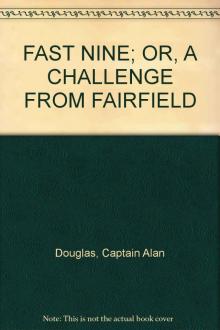 Fast Nine; or, A Challenge from Fairfield
Fast Nine; or, A Challenge from Fairfield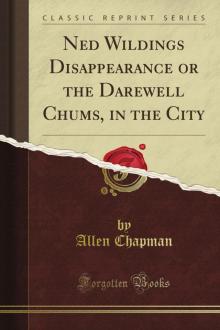 Ned Wilding's Disappearance; or, The Darewell Chums in the City
Ned Wilding's Disappearance; or, The Darewell Chums in the City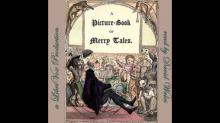 A Picture-book of Merry Tales
A Picture-book of Merry Tales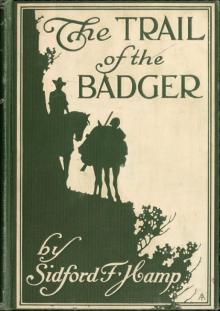 The Trail of The Badger: A Story of the Colorado Border Thirty Years Ago
The Trail of The Badger: A Story of the Colorado Border Thirty Years Ago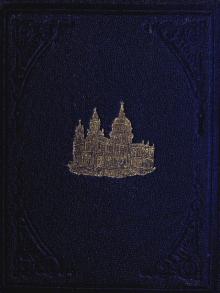 Peter Parley's Visit to London, During the Coronation of Queen Victoria
Peter Parley's Visit to London, During the Coronation of Queen Victoria The Rainbow, After the Thunder-Storm
The Rainbow, After the Thunder-Storm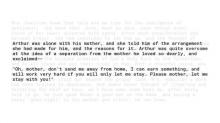 Arthur Hamilton, and His Dog
Arthur Hamilton, and His Dog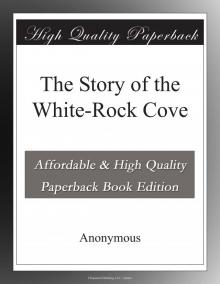 The Story of the White-Rock Cove
The Story of the White-Rock Cove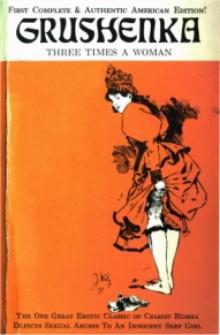 Grushenka. Three Times a Woman
Grushenka. Three Times a Woman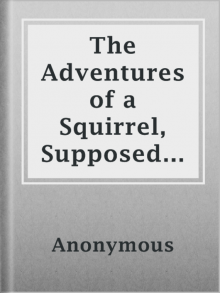 Adventures of a Squirrel, Supposed to be Related by Himself
Adventures of a Squirrel, Supposed to be Related by Himself Falling in Love...Again
Falling in Love...Again The Colossal Camera Calamity
The Colossal Camera Calamity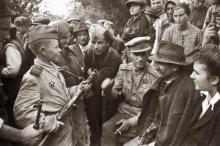 Child of the Regiment
Child of the Regiment Elimination Night
Elimination Night The Kingfisher Secret
The Kingfisher Secret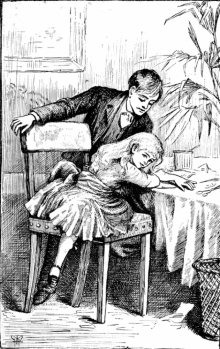 Left to Ourselves; or, John Headley's Promise.
Left to Ourselves; or, John Headley's Promise.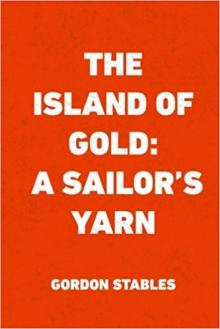 The Island of Gold: A Sailor's Yarn
The Island of Gold: A Sailor's Yarn Adventures of Bobby Orde
Adventures of Bobby Orde Twain, Mark: Selected Obituaries
Twain, Mark: Selected Obituaries When Love Goes Bad
When Love Goes Bad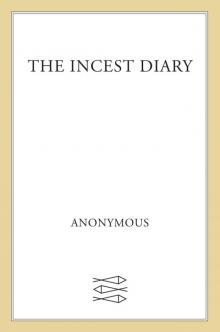 The Incest Diary
The Incest Diary Calling Maggie May
Calling Maggie May The Infidelity Diaries
The Infidelity Diaries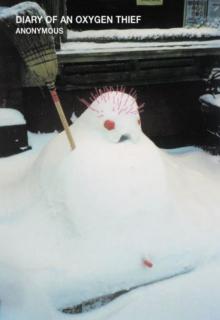 Diary of an Oxygen Thief (The Oxygen Thief Diaries)
Diary of an Oxygen Thief (The Oxygen Thief Diaries) ARABELLA
ARABELLA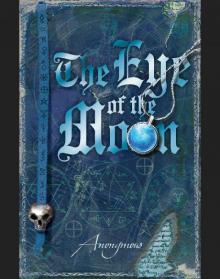 The Eye of the Moon
The Eye of the Moon Dara
Dara THE ALTAR OF VENUS: The Making of a Victorian Rake
THE ALTAR OF VENUS: The Making of a Victorian Rake The Book of Death
The Book of Death The Book of David
The Book of David The Devil's Graveyard
The Devil's Graveyard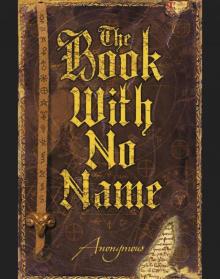 The Book With No Name
The Book With No Name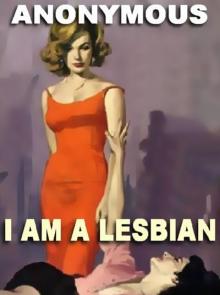 I Am A Lesbian
I Am A Lesbian Njal's Saga
Njal's Saga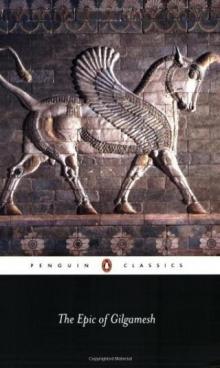 The Epic of Gilgamesh
The Epic of Gilgamesh Darling
Darling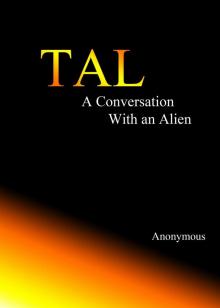 Tal, a conversation with an alien
Tal, a conversation with an alien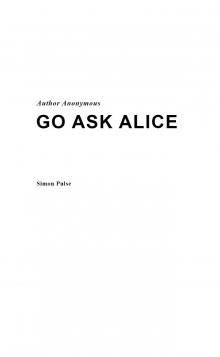 Go Ask Alice
Go Ask Alice Aphrodizzia
Aphrodizzia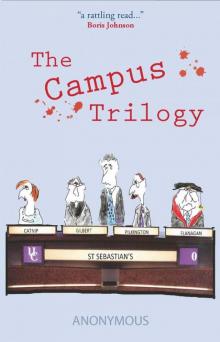 The Campus Trilogy
The Campus Trilogy Augustus and Lady Maude
Augustus and Lady Maude Lucy in the Sky
Lucy in the Sky Sight Unseen
Sight Unseen Pleasures and Follies
Pleasures and Follies The Red Mohawk
The Red Mohawk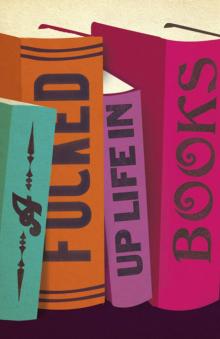 A Fucked Up Life in Books
A Fucked Up Life in Books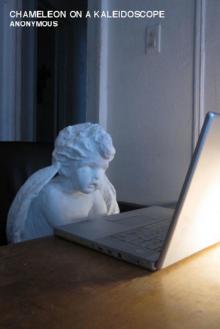 Chameleon On a Kaleidoscope (The Oxygen Thief Diaries)
Chameleon On a Kaleidoscope (The Oxygen Thief Diaries) Astrid Cane
Astrid Cane BEATRICE
BEATRICE The Song of the Cid
The Song of the Cid